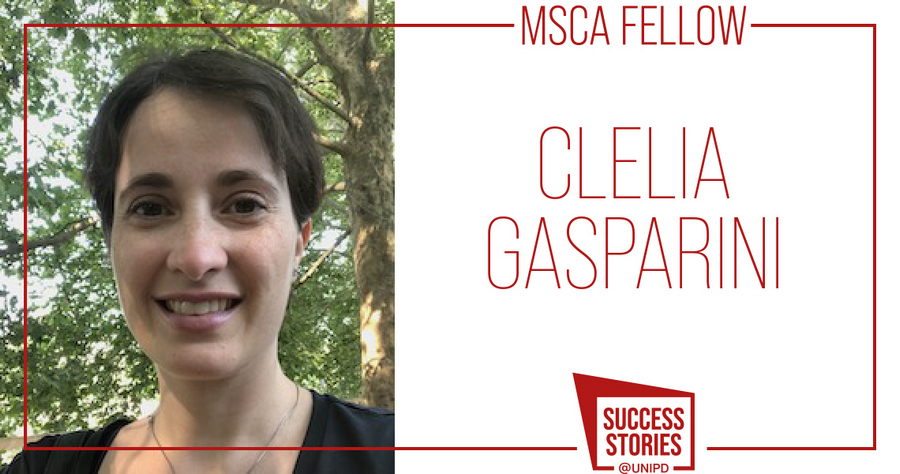
MSCA Fellow: Clelia Gasparini
From Padua to Australia and back: almost a tour around the world for Clelia
Read her interview, talking about zebrafishes, great research opportunities through the MSCA-IF and finally a tenure track.

Clelia obtained her PhD in Evolutionary Biology and then worked as Postdoc at the University of Padova.
In 2011 she was awarded a Marie Curie International Outgoing Fellowship.
The broad aim of this project is to study the role of ageing in the maintenance of variability in male reproductive success.
Can you explain your research project to us? Which are the objectives of your research?
Hi, I'm Clelia and I'm an Evolutionary Biologist working at the department of Biology at Unipd. My current research focuses on the interplay between reproductive biology and evolutionary processes, as to better understand the selective mechanisms that end up in fertilization. In particular, I'm interested in the evolutionary forces are at work on males and females at the gamete level. For this I use two fish species, the guppy and the zebrafish, looking at how sperm and eggs interact, as well as observing the reproductive behaviours before the mating.
Why did you choose to apply for a MSCA-IF? What do you think a MSCA-IF represents in the career of a researcher?
When I obtained my PhD in Padua, I was lucky to immediately get a post doc in the same lab. However, I was soon hungry for more, I wanted to go abroad, to improve my English, and finally be independent, so applying for a MSC Individual Fellowship seemed just perfect... I could choose my project, where to go, be independent with my own research money, and I could get a good salary too! I think that winning the Individual Fellowship pushed forward my CV, but most importantly gave me the boost of confidence in my quality and scientific thinking that I needed. After the Individual Fellowship I was awarded a similar grant from the Australian Research Council for another 3 years down under.
Why did you decide to come back to Padua?
At that time I was considering what could be my next career step, I was evaluating work opportunities while balancing personal needs and desires. I still had connections with my colleagues in Padua, so when this opportunity came out, the idea of a tenure track at such a good University, as Padua is, was very appealing. Plus, back to spritz! ;-)
You are the first MSC Fellow at UNIPD that benefitted from the "chiamata diretta" to "RTDB" * . What do you think about this opportunity?
I was delighted to have this opportunity and honestly moving back to Padua through this privileged way was much smoother than any other way. Moreover, as I said earlier, a tenure track is nowadays a good lure for a lot of researches at my career stage, who wish to have a bit of stability in work and life.
What are your plans for the future?
I want to enjoy all the nice things I missed about Padua and of course keep doing good research in my field. I'm also starting to teach this semester, so this new challenge worries and excites me and the same time: I hope to transmit my love for science to my students in the Natural Sciences degree and to be the kind of teacher and supervisor I wanted to have when I was their age... I will definitely try my best!
What tips would you share with a researcher who is thinking of applying for a MSCA-IF?
Do it - you won't regret it! But give yourself plenty of time to write the application, don't rush, and think about what kind of science you're passionate about, THAT should be your project!
*Fixed-term researcher contract leading to a tenure track position, that is foreseen for researchers who were awarded a three-year MSCA Global Fellowship - Ministerial Decree 963/2015.
International Research Office
via Martiri della libertà 8, 35137 Padova, Italy
tel. +39 049.827 1947 / 1948 / 1945
fax +39 049.827 1911
international.research@unipd.it


